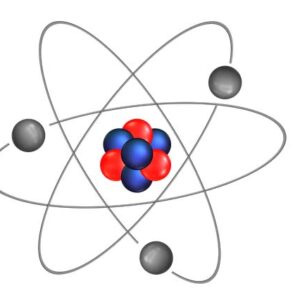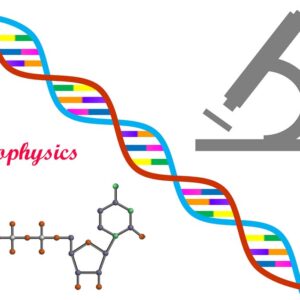
The area of chemistry known as “biochemistry” is concern with the investigation of the chemical elements and reactions that take place inside of living things. Understanding the underlying principles that control the behaviour of biomolecules including proteins, nucleic acids and carbohydrates requires combining concepts from the fields of chemistry, biology and physics.
The following are some of the primary fields of research in biochemistry:
- Enzyme biochemistry: This branch of biochemistry focuses on understanding enzymes which operate as biological catalysts for chemical reactions inside of cells. Biochemists investigate the attributes, composition and mechanisms underlying enzyme-catalyze processes.
- Metabolism: This branch of biochemistry examines the chemical processes that take place inside living things to sustain life. The processes and controls of metabolism including the breakdown of carbohydrates, lipids and nucleic acids are studied by biochemists.
- Structural biology: This branch of biochemistry studies how the three-dimensional (3D) structures of biomolecules, such as proteins and nucleic acids, connect to their functions. The structure of biomolecules is ascertain using methods like X-ray crystallography and NMR spectroscopy.
- Molecular biology: This branch of biochemistry studies how genes regulate an organism’s traits and the molecular underpinnings of biological activity. Biochemists research the replication, transcription and translation processes of DNA as well as the structure regulation and function of genes.
- Cellular and molecular biology: This branch of biochemistry focuses on understanding the composition organisation and activity of cells and the molecules that make them up. Biochemists research the molecular causes of diseases as well as the processes that underlie cell development, division and communication.
- Biotechnology: This branch of biochemistry examines how biochemistry and molecular biology are applied to the creation of novel technologies like genetic engineering, fermentation and tissue engineering.
- Biophysics: This branch of biochemistry focuses on how to investigate biological processes using chemical and physical concepts. The atomic and molecular structure and function of biomolecules are investigate using a variety of methods including X-ray crystallography, NMR spectroscopy and others.
- Medical biochemistry: This branch of biochemistry focuses on using the subject to research human health and illness. Biochemists investigate the molecular causes of illnesses and the physiological processes by which they manifest in the body. They then use this information to create innovative diagnostic and therapeutic methods.
- Nutritional biochemistry: This branch of biochemistry examines how nutrients affect health and how they function in the human body. Biochemists investigate how vitamins and minerals are metabolised as well as how nutrition affects health.
- Plant biochemistry: This branch of biochemistry focuses on the investigation of the chemicals and chemical reactions that take place within plants. The metabolism of plants including photosynthesis and the production of secondary metabolites, as well as the significance of plant constituents for human health, are topics of study for biochemists.
- Microbial biochemistry: This branch of biochemistry focuses on the investigation of the chemicals and chemical reactions that take place inside microbes. Biochemists investigate how microbes use their energy sources including fermentation processes and the synthesis of biomolecules like enzymes and antibiotics.
- Evolutionary biochemistry: This branch of biochemistry examines how biomolecules and metabolic pathways have changed over time. The origin of new metabolic pathways and the molecular mechanisms of adaptability are topics of study for biochemists.
- Immunochemistry: This branch of biochemistry focuses on understanding the immune system as well as the chemical mechanisms that underlie immune responses. In addition to researching the processes by which the immune system detects and reacts to foreign molecules, biochemists also examine the structure and function of antibodies and other biomolecules involve in the immunological response.
- Neurochemistry: This branch of biochemistry focuses on the investigation of the chemical reactions that take place within the neurological system. The biochemistry of neurotransmitters and other signalling molecules, as well as the methods by which they control neuronal function are topics of study for biochemists.
- Developmental biochemistry: This branch of biochemistry focuses on the investigation of the chemical procedures that take place when organisms develop. Biochemists investigate the molecular processes behind cell proliferation, differentiation and the development of organs and tissues.
- Cancer biochemistry: This branch of biochemistry focuses on understanding the chemical changes that take place in cancer cells as well as the ways in which they differ from healthy cells. Biochemists investigate the biochemistry of mutations that lead to cancer, the control of cell division and proliferation and the metabolic alterations that take place in cancer cells.
- Marine biochemistry: This branch of biochemistry examines how biomolecules function in the marine environment and the chemical processes that take place in marine animals. In addition to the synthesis of natural products, the function of marine animals in the global carbon cycle and the effects of pollution on the marine environment, biochemists also investigate the biochemistry of marine creatures.
A discipline of engineering known as “biochemical engineering” integrates the ideas of biology, chemistry and chemical engineering to create new methods, apparatus and products that make use of biological systems. It is employed throughout a variety of sectors including the manufacturing of medications, foods and beverages, biofuels and environmental cleanup. Biochemical engineers plan and improve the industrial-scale manufacture of medicines, foods and other items using their understanding of biochemical reactions, cell culture methods and fermentation processes. In order to increase the effectiveness and sustainability of these processes they also create new technologies.
The study of biochemistry is crucial to comprehending the chemical processes that take place within living organisms. It is a broad and fast growing topic. Improved human health and a better grasp of the underlying laws governing life are being made possible by our growing study of biochemistry.
There are many different fields of study and research that fall under the broad umbrella of biochemistry. It is crucial for comprehending the chemical processes that take place within living things and has several real-world applications in a variety of industries including biotechnology, agriculture and environmental science.









